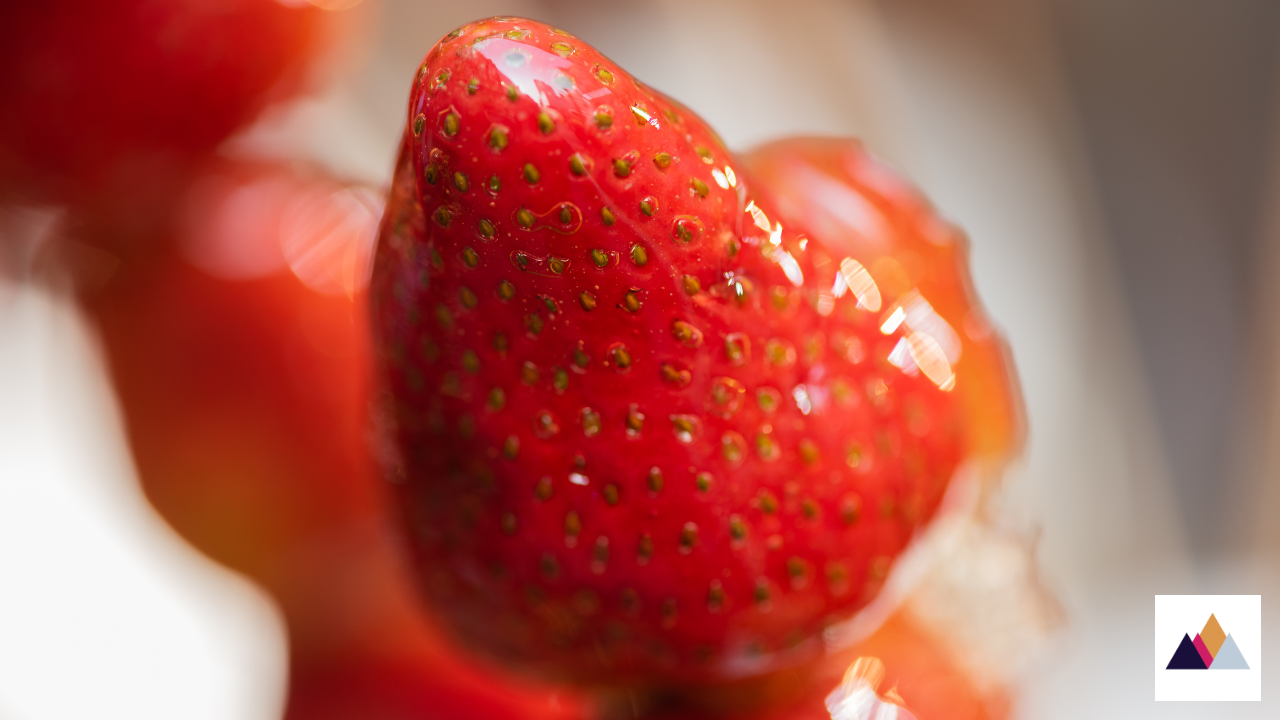Stuck to my kitchen
Apr 05, 2024
For the past two days my husband and I have literally been getting stuck to random spots in our kitchen.
Yesterday my jeans stuck to a line of almost invisible dried but formerly liquid sugar on a cabinet, leaving a trail of dark blue lint that I had to scrub off.
A few hours later my slippers suddenly felt immovable because of a small pile of the same substance on the floor.
And then last night as my husband deep fried salmon bites for the boys, we laughed when we realized that our cooking thermometer was completely coated in hard crystallized sugar.
This was all because on Wednesday Cooper entered the kitchen and announced, “I want to make Tanghulu” and then walked back to the living room to continue watching youtube videos.
My internet search told me Tanghulu is a Chinese sweet, made of liquid sugar that needs to be heated to 300 degrees, put over fresh fruit, and then immediately plunged into ice water. This creates a plastic-like sugar coating that crunches in your mouth.
Even after all these years of working through the PDA lens with my son, my first thought was:
Ok, if you want to make this “Tanghulu” thing, come in here and help me!
But then - after a sacred pause - I grounded down into the logic of his brain and nervous system (any expectation, pressure, demand, or energy around me wanting him to do the thing = brain tells him “the thing” is threatening, even if he wanted to do it in the first place).
I leaned into the strewing accommodation I teach, the energy of autonomy, and the value of experimentation. I thought "Hell, I’ll just see if I can make this thing with or without him."
Of course, as soon as I started the process, both boys immediately got off their screens and came into the kitchen. They delighted in using the food thermometer, dipping strawberries and green grapes in the bubbling syrupy liquid and then watching it harden in the ice water.
Cooper was actually exuding joy - and danced with a big smile on his face - the moment that the sugar hit the boiling point. He was so thrilled that it “worked” and turned out like he had seen on youtube. (FYI - Tanghulu ASMR videos feature anonymous mouths crunching on different types of edible objects coated in the hard sugar.)
I watched him dancing around the kitchen, delivering sweet and hardened strawberries to his little brother (who had gravitated back to his ipad) and even eating green grapes, which was a brand new food for him.
And in a moment of presence, I thought, "Wow, I am actually relaxed right now even though we are dealing with food." I realized I truly had no attachment to whether Cooper ate what he was making, or the green grapes and strawberries, because I know with 100% of my self that we are on the right path with his eating. We're moving slowly on the path, yes, but making steady progress.
As many of you know, our journey with eating has been traumatic for Cooper, my husband, and me. For years I worried he wouldn't get enough calories or nutrients to grow, or eat more than Lay’s potato chips and popcorn. I catastrophized that someday he'd need a feeding tube.
I know that not all PDA kids have eating as their stickiest basic need (and some who do can't stop eating rather than restricting), but even so I wanted to share with you all a resource on eating that aligns with the underlying approach to supporting PDA children and teens. (And to be clear, this is not a “paid collaboration” - I don’t do those - and is just me sincerely sharing of a resource that many clients have found helpful.)
Dr. Katja Rowell's book Love Me, Feed Me, provides so much research and medical insight that aligns with approaches to support a PDA child or teen with eating (and/or who has experienced trauma or food scarcity), including:
- An explanation of the logic of “responsive feeding” vs. the traditional way the medical system approaches kids and teens who struggle with eating
- How BMI is not an accurate measure of your child’s well-being
- That it's normal for children to not eat “three square meals a day”
- Why it is ok to serve dessert with a meal
- What the research shows on long-term health outcomes related to BMI vs. other things like social connection
- How growth charts are nuanced and shouldn’t be used to scare or shame parents (or their kids)
Wishing all of you a great weekend, with or without a crusted sugar kitchen!
Want my blog posts in your inbox?
Most weeks we send two emails. You can unsubscribe any time.

